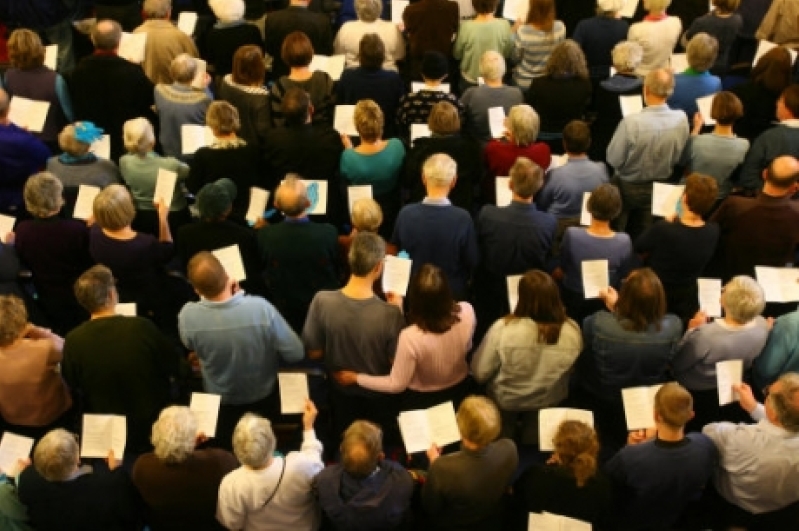
In less than a month’s time, the third Lausanne congress will gather 4,000 Christian leaders from 200 countries for a conference to be held in Cape Town, South Africa, 16-25 October 2010.
The churches in China have missed the last Lausanne congress held in Manila, 1989, but they won’t miss it again. 250 representatives from the house churches are being invited and are making preparations to join in this year’s gospel conference.
Recently, The Gospel Herald interviewed Rev. Tong-Su Liu, a Chinese pastor from mainland who has close-ties with the house churches in China, to share on the significance of China’s house churches’ participation in Lausanne III.
Liu reminisced of the time when Lausanne II was held and shared that although the China’s house churches were invited to participate, they, as a whole, did not feel that the “time was right yet” then. This time, they are ready.
“China’s house churches feel that they should connect with the world-wide churches, and they have more abilities to share, so now is okay to go and give some testimonies.”
With this as the background, China’s churches step by step responded to Lausanne’s invitations, and a committee consisting of representatives from Beijing churches and the large-scale groups from mainland was formed.
While comparing to Yu Jie and two others visiting the White House and other combinations, Liu called this committee as the first model of a unity that was recognized by the entire church of China.
“This committee will be responsible to collect the names of the representatives recommended, vote on each representative prior to approval, and then sent out invitation,” he said. The goal is to have 250 people to represent mainland China in participating the conference, but this list won’t include pastors who were born in China and has immigrated overseas.
“The prospects of the invitation are separated into four categories: city churches, village churches, large-scale groups (ex. The China Gospel Fellowship), gospel ministries (ex. Cypress Leadership Institute, China Christian Action Love Volunteer Association). The invitation list will leave some spaces for mainland pastoral workers who are temporarily staying abroad for studies or stays.”
Lausanne committee of China has shared before that “after praying together, China’s pastors have decided to be responsible for their own expenses and won’t accept any foreign financial support in order to express their gratitude towards the overseas members who have supported them in the past. In addition, they’ve also will fund-raise the traveling expenses for 100 pastors in the less-fortunate and neighboring countries.”
“Of the 200 participating nations, (initially) only the U.S. and China did not apply for support from Lausanne International, then India and Sri Lanka were challenged from seeing China’s churches, so they also raised their point of not accepting any foreign supports.”
The Chinese pastor acknowledged this neighbor-loving action of China’s churches, following the principle of “to give is better than to receive”, as a beautiful testimony.
While the preparation continues, it is reported that some Chinese government department have exerted pressure towards these participating representatives. Liu said that this time, the government is not directing the pressure on the representative, but on the church where the representative is at – brothers and sisters in his churches are worried.
An example that Liu gave was the recent invitation of Redeemer Presbyterian Church in New York to 20 house church leaders to visit New York for exchange on experiences in ministering churches in the cities and in social services, etc. He knows about half of those who were invited, and considers them as a basic representation of China’s house churches.
At that time, the government department still pressured the churches where these representatives are from. As a result, after being pressured, some churches have requested that their pastors to give up on going, which resulted in three of the 20 not being able to attend.
Liu encouraged the brothers and sisters in China’s house churches to participate together and to reflect on the meaning of Lausanne.
“Do not be cowered, it isn’t a personal or individual church matter for the representatives to join (Lausanne III), but it is the testimony of the greatest degree of representation of the entire church of China. In the next month, the most important thing is to guarantee that those invited can all go and participate.”
“Plainly speaking, it is ‘safer’ for pastors to go; according to the situation this time, where the church reveals their weakness will be where the local department will take advantage of.” Yet, he doubt that the government will use forceful measures to prevent, such as confiscating passports, blocking at customs, etc.
However, Liu said, “A church will ultimately have her weaknesses. Even in a relatively smaller situation of New York (Redeemer) Church, 15 percent of those invited couldn’t make it. Thus, it is also very difficult to predict the outcome this time.”
[Editor's note: reporter Titus Li contributed to this report.]






